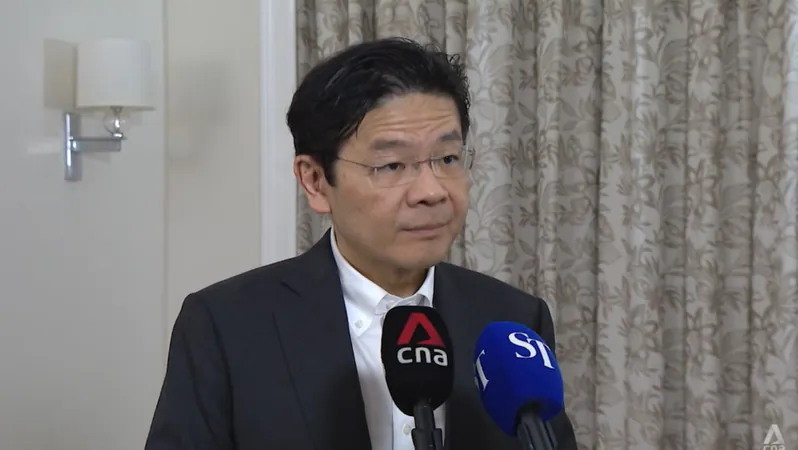
The Shifting Landscape of Venture Capital: Key Changes in 2024
2024-11-18
Author: John Tan
The Shifting Landscape of Venture Capital: Key Changes in 2024
In an unprecedented wave of movement within the venture capital industry, prominent investors are shifting firms, and many are opting to launch their own funds in 2024. This surge in activity is noteworthy considering that venture capitalists traditionally maintain long tenures at their respective firms, particularly at the partner or general partner level. VC funds typically operate on a 10-year life cycle, creating strong incentives for partners to remain invested in their current firms. Notably, many GPs have substantial personal investments in these funds, further tying their financial interests to their current roles.
However, this year has seen a flurry of notable exits, returns to previous firms, and some investors taking time off to recalibrate their next moves. Here are some of the most significant changes observed thus far:
November Highlights:
On November 5, Andreessen Horowitz made a splash by announcing that Brian Roberts is joining as a general partner, focusing on its American Dynamism and AI Apps funds. Roberts brings a wealth of experience from his previous roles as CFO at major companies like Splunk, OpenSea, and Lyft. Also on the same day, Andy McCall was introduced as a general partner, who previously held multiple positions at cloud company Samsara.
October Developments:
A significant shift occurred on October 15 when Paris Heymann, a partner at Index Ventures, transitioned to J.P. Morgan as co-managing partner in their venture and growth equity practice. His departure, particularly after helping to open a New York office for Index, marks a notable departure from his previous firm.
Meanwhile, Julian Eison announced his exit from Next Ventures, taking time to contemplate his next steps after supporting companies like Pair Team and Juno Medical.
In a bold move, Sandhya Venkatachalam left Khosla Ventures to establish Axiom Partners, aiming to raise $50 million for her first fund targeted at AI and machine learning startups.
September Changes:
On September 17, James da Costa joined Andreessen Horowitz as a partner with a specialized focus on B2B software and financial services, signaling his first venture into this realm after co-founding the African neobank, Fingo. Conversely, Jacob Westphal departed from a16z after three and a half years, opting for a new role at Will Ventures.
July Signings:
The landscape continued to change in July with Alex Cook preparing to leave Tiger Global after leading several key deals and investments during his time there. Lauri Moore was welcomed as a partner at Bessemer Venture Partners, with a focus on early-stage investments in data, AI, and developer tools—a realm that remains increasingly vital.
DCVC also added Milo Werner to lead its climate investing focus, reflecting a growing commitment to sustainable investing practices.
January Transitions:
The year began with notable exits, including Keith Rabois returning to Khosla Ventures after nearly five years at Founders Fund. Rabois, a significant figure in the venture capital realm, reiterated his long-standing commitment to Khosla Ventures.
What Does This Mean?
This reshuffling among venture capitalists marks a crucial period of evolution for the industry, with many investors embracing new opportunities or transitioning to build their own firms. As competition intensifies and the investment landscape continues to evolve, these changes could pave the way for fresh funding opportunities and innovative startups to flourish.
Stay Tuned!
As these developments unfold, TechCrunch will keep you updated on the latest venture capital movements. The industry is witnessing a pivotal transformation that will likely shape its future for years to come. Are you ready for the next wave of innovation?




 Brasil (PT)
Brasil (PT)
 Canada (EN)
Canada (EN)
 Chile (ES)
Chile (ES)
 España (ES)
España (ES)
 France (FR)
France (FR)
 Hong Kong (EN)
Hong Kong (EN)
 Italia (IT)
Italia (IT)
 日本 (JA)
日本 (JA)
 Magyarország (HU)
Magyarország (HU)
 Norge (NO)
Norge (NO)
 Polska (PL)
Polska (PL)
 Schweiz (DE)
Schweiz (DE)
 Singapore (EN)
Singapore (EN)
 Sverige (SV)
Sverige (SV)
 Suomi (FI)
Suomi (FI)
 Türkiye (TR)
Türkiye (TR)